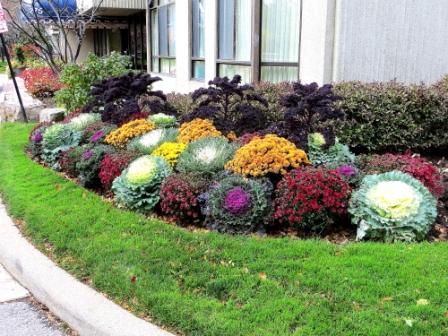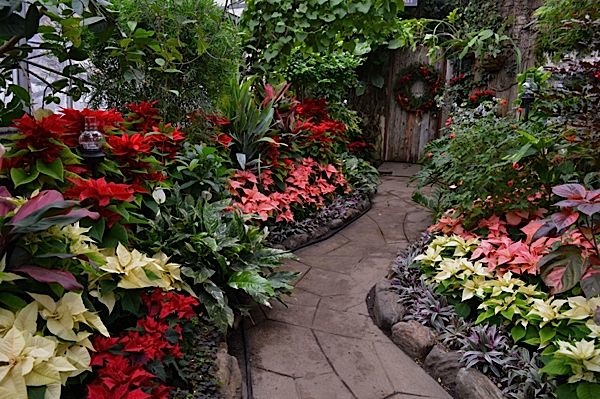Gardening elicits a sense of accomplishment and pride in those who appreciate it. It can help improve our mood, provide food, offer a nice place to relax or add value.
Gardens are to be enjoyed from a distance. They can be combined with seating, walking paths and barbecue areas. Condo gardens are common areas not intended as walking paths, a place for trash or a bathroom for pets. Dogs are the biggest threat to plants and should not be allowed to relieve themselves in gardens.
In condo corporations, gardening committees often make the mistake of viewing their common area garden as similar to a home garden. Their scale and perspective tends to be too small and not well suited to a large building common area garden.
For larger common area gardens, it is often best to work with a local landscaping company and designer to determine how to make the most out of this common area space. Their expertise is necessary to determine what works best for a particular area. They will consider the size of your space, shade and sun availability, and other factors specific to where your gardens are located. They advise on what can be done for a given budget. Landscaping companies can offer a monthly maintenance program if building staff or volunteers are unable to keep up with watering, pruning and other necessary gardening tasks.
Gardening involves far more than planting a few flowers and watching them grow. It requires a regular and ongoing commitment to maintain a healthy, vibrant and good looking garden.
Sure Green offers year round landscaping services. The company’s owner, Frank Medeiros, offers gardening tips for condo landscape committees seeking to make the most of their common area grounds.
Design
Gardens look their best, and most natural, when plants are grouped together. Rather than individual plantings in one or two rows, create groups of five to seven plantings.
Create a lush, balanced and abundant garden by planting groups of the same plant in patterns. This is more visually appealing than many different plant types competing for attention.
Consider the Seasons
 Purchasing the prettiest plants without considering where they will be planted is a common mistake. The most colourful plants are unlikely to last an entire season.
Purchasing the prettiest plants without considering where they will be planted is a common mistake. The most colourful plants are unlikely to last an entire season.
Spring, the shortest season, is when people appreciate bright colours; a great remedy for a long and cold winter.
Summer plantings begin in April or May with fall plantings mid-August to mid-September.
Winter colour can be achieved with evergreens combined with cut branches or arrangements in outdoor planters.
Best to Plant
For a garden or landscape committee plant selection tends to be a priority. Flowers are most popular but will not provide colour through the three seasons.
A combination of annuals and perennials, combined with foliage, works well to provide colour through three seasons of the year.
Perennials have the advantage of coming back each year. They are low cost and low maintenance.
Some perennials thrive best with sunlight and lots of water. Others survive well with limited sun and less water. Perennials bloom only at specific times.
Annuals offer more variety in colour and texture. They bloom throughout the summer but do not survive through cold months so must be replanted each year.
Dark coloured annuals work best when watering will be limited.
In an urban environment with high-rise buildings, shade may be more common than sun. Shaded areas are best served by shade-loving plants. On balconies, small pots retain little water so require frequent watering.
Watering and Soil Covering
Mulch in urban gardens can help retain water and prevent plants from drying out. It offers the added benefit of protecting plantings from dog waste.
Soil additives, or amended soil, can be used to improve the quality of plantings and make them more drought-tolerant.
Overwatering is a concern in condo buildings where garden areas are maintained by a combination of landscaping company, condo staff and resident volunteers.
As with all things condo, cleanliness is an important consideration. Keeping a garden area clean helps signal to people that the space is maintained and should be treated with respect.
A healthy garden requires patience. It takes time to build the ideal garden. Consistency is the key to improvement year over year.
See Your Garden Requirements for Landscaping Committee considerations prior to speaking with landscapers or designers.




